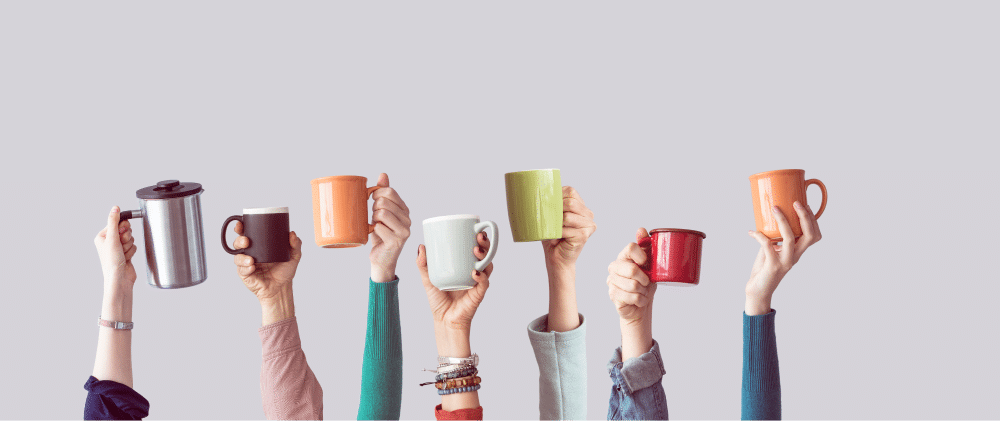We’ve all experienced it—those mornings when the alarm clock’s shrill ring seems to echo through your bones, when five more minutes of sleep seem like a luxury we’d trade gold for.The alarm buzzes like an angry bee in your ear and your body feels like stiff. Peeling yourself away from the bed seems like the hardest thing you’ve ever done, and your brain is in a thick fog. As the day drones on, you’re fueled by huge amounts of caffeine, barely keeping your eyes open.Your eyelids feel like they’re made of lead and your body pleads for a few more precious minutes of sleep, but duty calls, and so begins another day.
Welcome aboard our sleep and productivity express!Together, we’ll discuss the mysteries of sleep deficit and see how it’s connected with our ability to think, perform, and be productive .We’ll share some sleep-hacks that will not just up your shut-eye game but also boost your daily productivity. So, come on, let’s pull up the covers on the bed of knowledge and dive right in!
The Brain Recharge
Our brain is a relentless machine that works day and night. The brain works even when we sleep. While sleeping, it processes all the information received during the day and gets rid of all unnecessary information, that is, informational garbage. It’s like internal hygiene in our brain. The brain, like the body, also needs hygiene. Sleep is not only rest, but also a complete reboot, energizing, an investment in a productive tomorrow. Taking care of healthy sleep, we take care of our productivity!
Emotion Control
Oh my friends, the interesting fact is that quality and healthy sleep plays an important role not only in our physical health, but also emotional. It turns out that sleep is the key to our healthy emotions.While sleeping, the brain processes not only intellectual information, but also emotional information that we experienced during the day. Healthy sleep helps us to live through these emotions, to survive them. Sleep deprivation causes the opposite reaction. The brain, unable to cope with the experienced emotions, gets tired, passing fatigue to our body. Therefore, the next day we feel tired, irritated and depressed. But there is another interesting nuance – not only sleep affects emotions, but emotions also affect sleep. You know how it goes – when we’re feeling all worked up or stressed out, falling asleep becomes a real struggle. It’s like our emotions are running on overdrive, making it hard to switch off and relax. That’s why it’s crucial to find ways to deal with our emotions before hitting the hay. Whether it’s listening to some calming tunes, practicing meditation, or taking a peaceful stroll in the park, finding what helps us unwind can make a world of difference. Because here’s the deal: sleep and emotions are like bestfriends, they have a tight connection.
Also, you will be surprised, but planning helps to reduce stress levels and gain peace of mind. When planning future actions, there is a feeling of confidence and stability, which helps to reduce stress and relax. In this case, online calendar planner can become your indispensable assistant and true friend.
Focus, Focus, Focus

Go ahead. Now, let’s talk about focus. Sleep does more than just process information. It’s like a magic potion for our brain cells, the neurons. These neurons are like little superheroes that help us think, concentrate, and be on top of our game. But here’s the deal – when we don’t get enough sleep, these superhero neurons struggle to regenerate and do their job properly. As a result, we spend our days feeling scattered, forgetting important stuff, and struggling to stay focused. It’s like trying to read an important document but getting easily distracted, or listening to the news but zoning out halfway through. Even speaking at a conference can become a challenge when our focus is compromised. So remember, sleep isn’t just about getting rest; it’s a crucial process for our neurons to recover and help us be sharp and attentive in our daily lives.
Creative Juices Flowing
It turns out sleep and creativity are linked. According to scientists, during deep sleep, our brain is able to connect old memories, visualize the information received and build associations. This process contributes to the development of creative thinking and the generation of new ideas. Without quality sleep, this process is impossible. So, keep in mind that quality sleep increases your creativity and who knows, maybe one day in a dream you will come up with brilliant ideas that will help you bring the most extraordinary projects to life.
Caffeine isn’t the Cure

Ah, the coffee! We’ve all heard the rumor that a good cup of the “magic” drink can “magically” replace a solid night’s sleep. But here’s the truth: caffeine is like a temporary energy shot.Here are some factors that explain how coffee can have negative effects on the brain:
- Dependency and Withdrawal Symptoms
- Anxiety and restlessness
- Dehydration
- Impact on Stress and Cortisol Levels
- Adverse Effects on Blood Pressure
All the factors negatively affect brain health.
To sum up, sleep is like the secret sauce that boosts our productivity.It helps to recharge and get ready for a successful and productive day! Quality sleep makes our brain into a superhero, able to concentrate on any task and cope with all challenges.But when we don’t prioritize sleep, it’s like sending our superheroes into battle without their superpowers. They become sluggish, unfocused, and unable to perform at their best.








